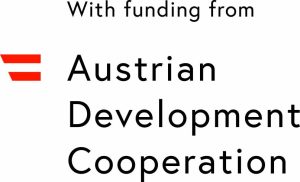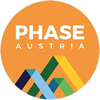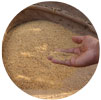The overarching project goal is to reduce maternal and child mortality, in particular by improving healthcare and nutrition of mothers and children in four communities in the Karnali region in western Nepal, one of the poorest and most remote regions of the country.
Project duration:
1 January 2021 to 31 December 2023
Target communities:
Melchham and Jair, Humla District; Bichhya and Ruga, Bajura District – Karnali Region
The project links up to the existing activities of PHASE in the region, amongst others an ADA-funded framework programme (2016-2018) and an ongoing ADA projects in two municipalities in neighbouring Mugu District.
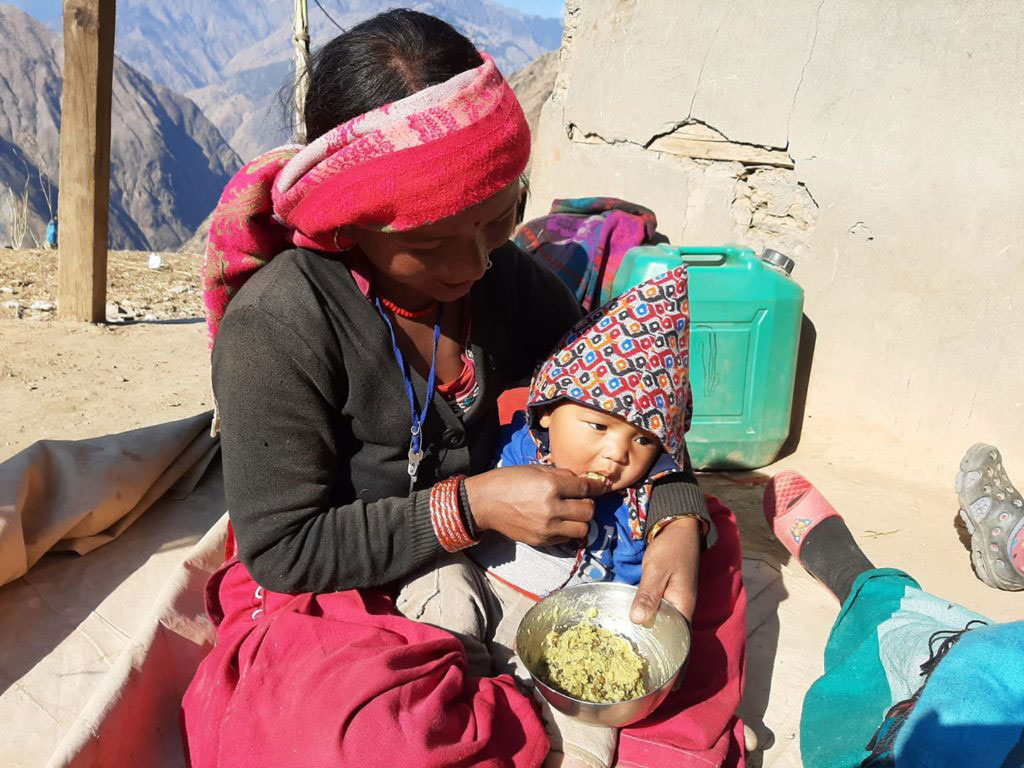
Expected results
- Improved access to prenatal care, skilled attendance at birth and maternal health servics(SDG 3.1, 3.7, 3.8, 3c, EU GAP II obj. 10): Improved quality and easier access; significant reduction of maternal mortality (from 239/100.000 to 116/100.000), increased utilisation of antenatal care (1st ANC visit from 17 to 90%, 4th visit from 57 to 70%) and postnatal care (from 90 to 95%), as well as skilled birth attendance (from 62 to 75%), and raising awareness of mental health and Mental First Aid..
- Improved access to healthcare services and balanced nutrition for small children (SDG 2.2, 3.2, 3.7, 3.8, 3c, EU GAP II obj. 10): more reliable presence of staff at health centres, availability of medications as well as outreach activities of health workers improve access; in particular growth monitoring will cover nearly 100% of under five-year-old children, making it possible to take appropriate action against malnutrition.
- Improved nutrition practices and increased knowledge among mothers and carers (SDG 2.1, 2.2): Specific offers allow for learning about proper nutrition for small children (breatfeeding, weaning food etc.), improve nutrition habits, and raise awareness for the importance of balanced diets.
- Increased availability of high-quality food and more balanced diets through agricultural activities (SDG 2.3, 2.4): a total of 678 participants from particularly disadvantaged families (i.e. roughly 30% of households) will have different trainings (sustainable agriculture, off-seasonal vegetable farming, mushroom farming, chicken breeding, kiwi plantation, spice crop farming) as well as material input with tools, polytunnel sheets, and chicks; at least 60% of participants will succeed in significantly increasing their agricultural output.
- Improved access to women’s literacy (SDG 4.5): 200 women will participate in 6 months-long literacy courses; at least 50% of them will be able to read and write simple sentences.
Target groups
The target group of the project is the overall population of the four project communities, in total 14,100 people in 2,150 households. Direct beneficiaries will be roughly 2,100 children under five as well as 4,000 women of childbearing age; in addition, 1,100 individuals over 60 years of age; 20-30% of them are members of disadvantaged ethnic groups or castes. Due to lack of infrastructure and insufficient healthcare services, the whole target group may be regarded as disadvantaged. We expect around 20,000 patient contacts per year in the supported health posts, among them 3,000 children under five, as well as at least 200 births with skilled attendance. In addition, the whole population will benefit indirectly from improved medical services and increased knowledge (nutrition, hygiene). Older people, too, as well as people living with disabilities will strongly benefit from outreach activities and jouse-to-house visits by PHASE staff as they face additional challenges in accessing health services. 670 particularly disadvantaged families will receive direct support in the agricultural programme, 200 women in the framework of the literacy programme.
Activities
Recruitment of 2 Auxiliary Nurse Midwives for each of the 4 health posts who will work with government staff, as well as 1 Health Supervisor each for 2 health posts, and 4 Social Mobilisers to support the project; in addition, we will provide medication and additional equipment for the health posts, and thus create the conditions for a substantial improvement of services. The ANMs will also organise outreach activities and conduct house-to-house visits in order to identify vulnerable individuals. In cooperation with local stakeholders as well as on district level, PHASE will organise workshops to improve knowledge regarding health, mental health, hygiene and nutrition. 4 Agricultural Facilitators will train 670 farmers in sustainable farming methods and make sure that implementation runs smoothly. 200 women will participate in literacy course. All project activities will be closely coordinated with local and regional government representatives to ensure support by relevant authorities.
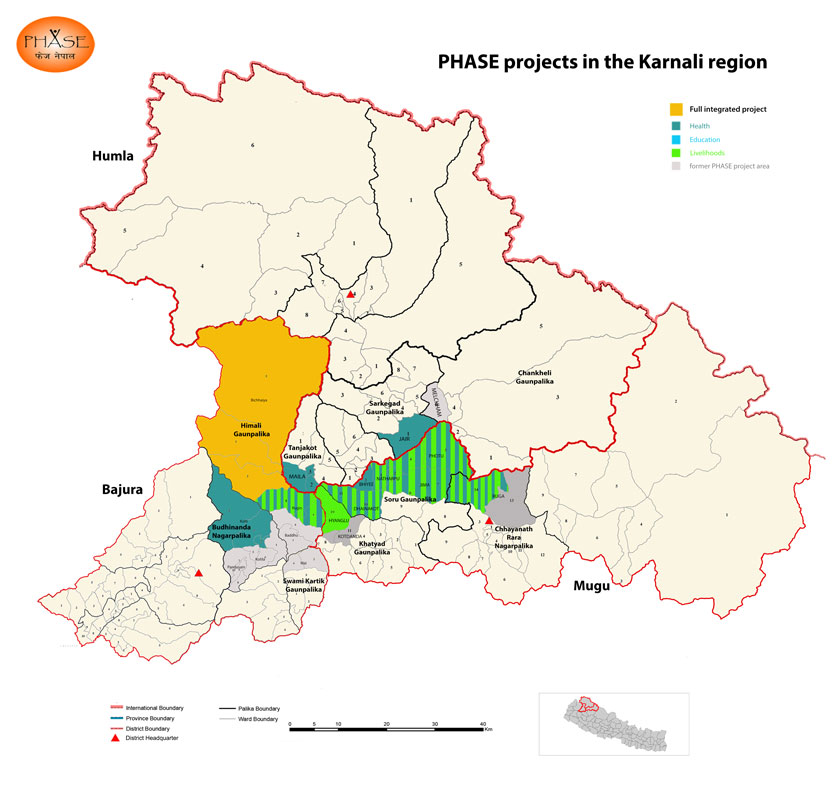
Initial situation/ background information
According to hall indicators (HDI, MPI), the Karnali region in the districts of Bajura and Humla is one of the most disadvantaged and least developed areas of Nepal: according to a study by British DFID, 81% of its population lived in chronic poverty in 2013 (nationally: 21-35%), 64% are extremely vulnerable (nationally: 36-44%). The region has the highest percentage of people affected by severe poverty. In particular nutrition is a problem: 60% of children under five are affected by stunting, up to 20% are severely underweight. Data of our partner organisation PHASE Nepal indicate a child mortality significantly higher than the national average (U5 mortality rate 58-69/1,000, nationally 39/1,000; neonatal mortality rate 29-41/1,000, nationally 21). One third of women of childbearing age are anemic, more than one fifth are underweight; antenatal care and skilled birth attendance are less available than in the rest of the country. The COVID crisis exacerbates this situation – people in the region report loss of income of up to 72%.
The Austrian Development Agency is funding 50% of project costs.
